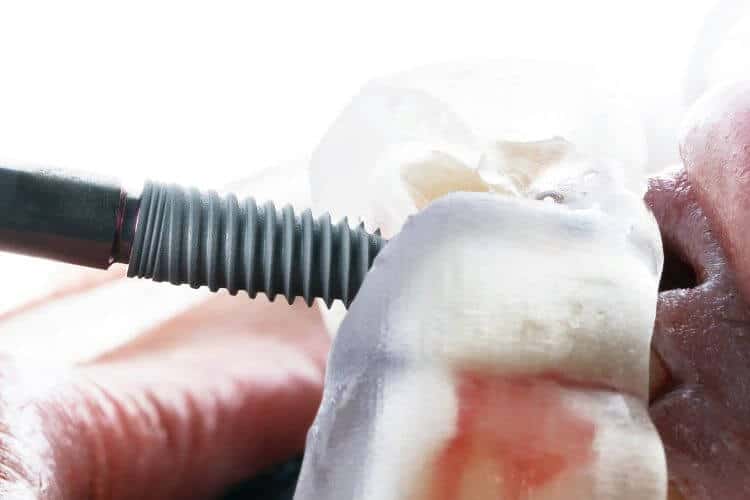Imagine waking up in the middle of the night with an intolerable toothache. Ouch! Not only does it dampen your mood, but it disrupts your sleep, and throws your whole day off balance.
Toothaches—those unpleasant sensations you feel within or around a tooth—are often triggered by a variety of factors. It could be due to dental infections, gum diseases, plaque, damaged fillings, tooth decay, or other dental issues. Understanding the root cause of tooth pain can be key to addressing the discomfort effectively❗
In this article, we’ll explore the prevalence of toothache pain and provide some handy tips to help you soothe that nagging toothache.
But, heads up! Though these solutions can provide temporary relief, it’s important to always consult a dental professional for proper diagnosis and treatment. After all, your teeth are, quite literally, your key to a great smile!
Now, buckle up as we dive into the world of toothache pain and its alleviation—all for the sake of your precious pearly whites.
Table of Contents
Prevalence and Impact of Toothache Pain
In this section, we’ll be diving into the prevalence and far-reaching impacts of toothache pain on global health. This isn’t simply your occasional tooth pain from having one too many sweet treats, but serious, chronic pain that millions of people suffer from every day.
Global Statistics
When we talk about toothache pain, we’re talking numbers, huge numbers! Based on our data, over 40% of people have experienced some form of mouth pain in the last 12 months. Let’s not forget about cavities – a whopping 80% of us will have developed at least one cavity before we hit 34! 😳 But it doesn’t stop at cavities, severe periodontal diseases are affecting around 19% of the adult population worldwide. Quite startling, isn’t it?
And if you’re thinking this is mainly an adult problem, think again, because our kids are just as affected! Our data suggests that 60-90% of school children worldwide suffer from dental caries. This is not only distressing for the children, but also for their parents and caregivers.
Prevalence in Different Age Groups
Now, let’s dive a bit deeper and examine how different age groups are affected. It’s especially important to note that 13.2% of children aged between 5 and 19 years, and 25.9% of adults aged between 20 and 44 have untreated dental caries. That’s a lot of potentially preventable suffering!
Interestingly, our research showed that the prevalence of dental pain varies widely between studies, ranging from a low of 1.33% to a high of 87.8%. This could be due to many factors, such as differences in population samples and methodologies used.
The takeaway here? Toothache pain is surprisingly common and can have serious effects on our overall well-being. It’s an issue that affects people of all ages, from our little ones to our mature adults. So, let’s put a spotlight on it and ensure we’re doing all we can to prevent and treat it. After all, a healthy smile is a happy smile! 😊
Emergency Dental Visits and Tooth Pain Facts
Understanding tooth pain and dealing with dental emergencies is part of our journey towards maintaining optimal oral health. The need for emergency dental visits is more common than most of us realize. 🏥
Let’s delve deeper into the sobering reality surrounding emergency department visits for dental pain, discuss some typical tooth problems, and underscore the importance of seeking immediate dental treatment when necessary.
Emergency Department Visits
Toothache is far from a small inconvenience; the truth is, it leads to around 2 million visits each year to hospital emergency departments in the United States, alone! 😮
It’s worth noting, not all dental problems require recourse to a drippy, buzzing ER ward. Urgent help is often necessary for circumstances involving sudden and severe tooth pain, knocked-out teeth, or a loose permanent tooth. We must remember, tooth pain is a signal that something is wrong and promptly seeking help can prevent worse problems down the line.
Common Tooth Problems
When we mention tooth problems, several issues spring to mind. For some, it could mean a simple toothache, while others might be battling severe discoloration and looking into tooth whiteners–a solution that’ll be explored by an estimated 38.92 million Americans by 2023! 🤩🦷 Then there’s the unfortunate reality of tooth-loss, a problem faced by approximately 1 in 20 adults who are missing all their teeth, and an alarming 20% of older adults who have become edentulous (lost all their teeth).
The tooth problems landscape is undoubtedly wide and varied, but what they all have in common is the significant effect on quality of life and overall health. It’s crucial to develop a good relationship with your dentist and never hesitate to reach out when you suspect a problem. If we remember to pay attention to our oral health and Seek Immediate Dental Treatment as required, most common tooth problems can be easily prevented or addressed, ensuring bright smiles all around! 😄👍
So, the next time you experience tooth discomfort or come across an alarming dental emergency, willingly consider paying your dentist a visit. After all, our approach to dental health is a defining factor of our overall wellness journey! 💪🦷🥦
Effective Relief for Toothache Pain
Nothing ruins your day quite like a throbbing toothache. Whether it’s a minor annoyance or a debilitating misery, toothache pain can disrupt your entire routine. But don’t despair! We have some effective relief strategies that may just turn your grimace into a grin. From combining pain relievers to natural remedies and sound oral hygiene practices, the right approach can drastically minimize your discomfort.
Combination of Advil and Tylenol
Taking an over-the-counter pain medication like Advil (ibuprofen) or Tylenol (acetaminophen) is a common first line of defense against toothache pain. But did you know that combining these two can be as effective as prescription opioids? Talk about a game-changer! Here’s why:
- Ibuprofen, an anti-inflammatory drug, alleviates the swelling associated with toothaches.
- Acetaminophen works on the pain-processing centers of your brain.
By combining the two, you’re basically hitting two birds with one stone. However, remember to always follow the recommended dosage guidelines on the package to avoid any potential side effects.
Alternating Acetaminophen and Ibuprofen
Are you oscillating between excruciating bouts of pain and moments of relief? If yes, then you might want to try alternating acetaminophen (Tylenol) and ibuprofen (Advil) to keep the toothache at bay. This combination can provide extended pain relief when compared to taking a single type of medication. But remember, timing matters! Follow a schedule to ensure pain-relieving power all day long.
Natural Remedies
For those who prefer a more organic approach, there are a few natural remedies that can help soothe your aching tooth.
- Munching on some raw garlic can mitigate pain due to its antibacterial properties.
- Rinse your mouth with salt water or hydrogen peroxide solution. Both methods can cleanse your mouth and reduce discomfort.
Who would think relief might just be sitting in your kitchen cabinet?
Over-the-Counter Topical Gels
For immediate relief from toothache, consider using an over-the-counter topical gel. These gels typically contain benzocaine, a local anesthetic that numbs the area, offering you instant respite. The best part about these gels? They can be applied directly to the aching tooth and the surrounding gums.
Oral Hygiene Practices
Last, but certainly not least, keeping up with regular oral hygiene practices can go a long way in preventing toothaches in the first place. Brushing with warm water and applying a cold compress can help alleviate the throbbing pain. And while these methods might not offer an instant cure, they can provide a good degree of relief until you see your dentist.
We hope these tips offer the effective relief you’re looking for. Remember, while these options can soothe your toothache pain temporarily, it’s important to schedule a visit to your dentist to address the underlying issue causing your discomfort.
Conclusion
Taking control of your dental health can seem intimidating, especially in the face of excruciating toothache pain. But we assure you, it doesn’t have to be. With quick, temporary pain relief solutions at hand, you can manage the discomfort while seeking professional treatment.
Remember to pay attention to your oral hygiene habits as they play a substantial role in maintaining your overall dental health. Brushing and flossing regularly, avoiding sugary foods, and getting regular dental check-ups can not only prevent toothache but also ensure the health and longevity of your beautiful smile.
However, while home remedies and over-the-counter medications can provide temporary relief, they are not a long-term solution. If you’re dealing with persistent toothache pain, it’s crucial to seek professional dental care. At Wilshire Smile Studio, we’re your partners in dental health, offering a range of services from emergency dental care to preventative dentistry.
Our dedicated team of professionals is committed to providing exceptional dental care in a comfortable environment, using state-of-the-art equipment and personalized attention to meet your needs. We aim to make dental care accessible for everyone, offering affordable services and financing options for every budget. Hurting with toothache? Call us at (323) DEN-TIST (336-8478) or book an appointment online to find comfort and relief at Wilshire Smile Studio.
Taking actionable steps towards better dental health isn’t a choice, it’s a necessity. So, say ‘yes’ to healthy teeth and a beautiful smile today! Remember, at Wilshire Smile Studio, we’re not just about fixing teeth; we’re about changing lives.
Frequently Asked Questions
- What are some home remedies to relieve toothache pain? Some home remedies to relieve toothache pain include rinsing with warm salt water, applying a cold compress, using clove oil, placing a garlic clove on the affected area, and taking over-the-counter pain relievers.
- When should I seek emergency dental care for a toothache? You should seek emergency dental care for a toothache if you experience severe pain that persists for more than a day, have a fever or swelling, have difficulty swallowing or breathing, or if the toothache is accompanied by other concerning symptoms.
- What can I do to prevent toothaches? To prevent toothaches, it’s important to maintain good oral hygiene by brushing your teeth twice a day, flossing daily, avoiding sugary foods and drinks, and scheduling regular dental check-ups and cleanings.
- What are some common causes of toothaches? Some common causes of toothaches include tooth decay, gum disease, tooth abscess, dental trauma, teeth grinding, and sensitivity to hot or cold foods and drinks.
- Is it necessary to visit a dentist for a toothache even if the pain subsides? Yes, it is still necessary to visit a dentist for a toothache even if the pain subsides. The underlying cause of the toothache may still exist and require proper dental treatment to prevent further complications.









